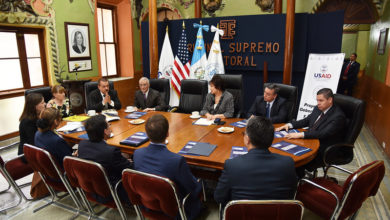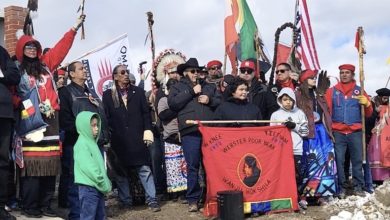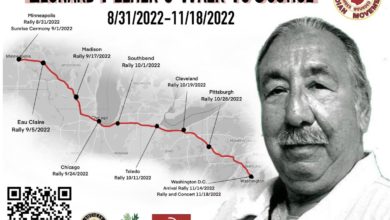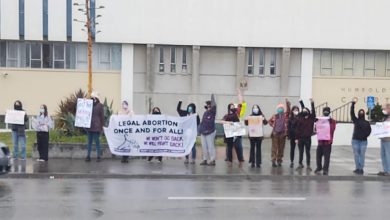Indigenous folks have a long history of being exploited and colonized in Northern California. The land labeled by the United States as Humboldt County was home to the Yurok, Karuk, Tolowa, Wiyot, Hupa, and many other now-exterminated peoples for hundreds of years. The area has a long history of displacement and genocide of Indigenous people, a history that is still ignorantly celebrated by some within the Humboldt community.
This history receives little to no recognition within the community, in K-12 education, or even at Humboldt State University in Arcata.It is not widely known, for instance, that the Arcata Plaza was an auction block for Indigenous slaves.
The lack of recognition is what makes some recent events so important. The week of Oct. 9 was organized around Indigenous Peoples’ Day at Humboldt State University. Along with this, organizations such as Seventh Generation Fund for Indigenous Peoples and the Wiyot tribe organized events in solidarity with Indigenous Peoples’ Day in the community. At HSU, the week highlighted speakers, events and discussions around the Indigenous struggle in the Humboldt community and beyond.
On the evening of Oct. 12, local Indigenous organizers and activists were invited to participate in a discussion on the topics of Columbus, the Doctrine of Discovery, and Indigenous peoples’ rights. In this discussion, the speakers rejected the characterization of Columbus as a hero, and the way in which U.S. education teaches the history of Columbus. Cynthia Boshell, former HSU lecturer, validated the idea of the Doctrine of Discovery as “a euphemism for Christian oppression of Indigenous peoples.”
The speakers also told of historical Indigenous movements as well as ones happening in the present. Tia Oros Peters, Executive Director for Seventh Generation Fund for Indigenous Peoples, asserted that resistance has been present since the first act of colonization on Indigenous peoples and that Indigenous folks “have been responding for over 500 years.”
On the day after the discussion, Seventh Generation and folks from the Wiyot tribe organized an action in solidarity with Indigenous Peoples’ Day on the Arcata Plaza. Attendees were requested to wear red in solidarity with subjugated Indigenous women, speakers announced their solidarity, told their stories of resistance and marginalization and performed songs for the crowd. This event raised consciousness of the oppressive experiences of Indigenous women, protested the celebration of Columbus and demanded the removal of a large statue of former president and imperialist William McKinley, which stands in the center of the Plaza. McKinley was president during the Spanish American War, which marked the beginning of the United States’ entrance into the imperialist phase of capitalist development, and also oversaw significant attacks on Native Nations.
This statue has been an issue for a long time in Arcata and the surrounding areas. In addition, a plaque on the southwest corner of the plaza details this area and The Jacoby Storehouse a “refuge” for Indigenous people in the area in conflict with the narratives of child trafficking, slave trade, and murder of Indigenous people in Humboldt County. Currently there is an active community and student movement to remove this statue and plaque, and rid the community of this glorification of colonization. A petition requesting the removal of the McKinley statue has been circulating in the community and on the HSU campus.





